

SUSTAINABLE DEVELOPMENT GOALS
What are the Sustainable Development Goals (SDGs)?
At the United Nations (UN) Sustainable Development Summit on September 25, 2015, world leaders adopted the 2030 Agenda for Sustainable Development. This includes a set of 17 Sustainable Development Goals (SDGs) to end poverty, fight inequality and injustice, and tackle climate change by 2030.
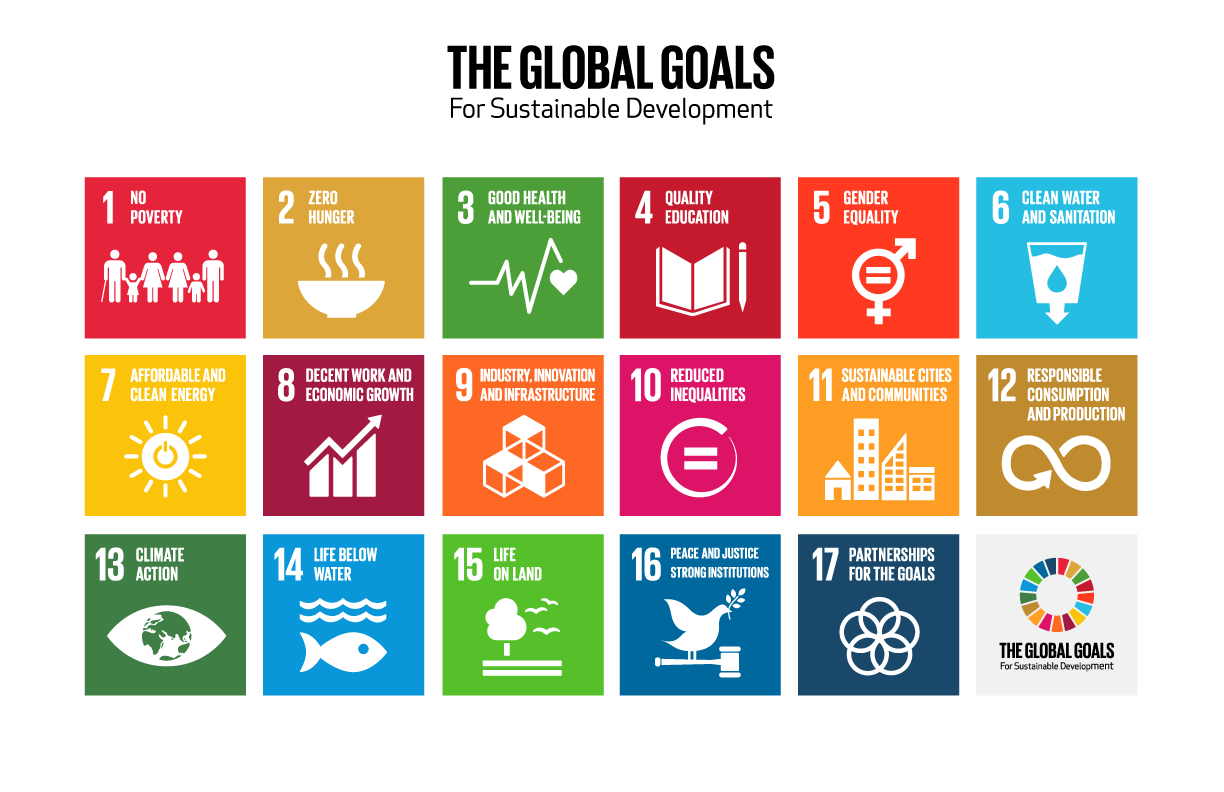 How do the SDGs relate to the Millennium Development Goals (MDGs)?
How do the SDGs relate to the Millennium Development Goals (MDGs)?
The Sustainable Development Goals (SDGs), also known as the Global Goals, build on the work of the UN’s Millennium Development Goals (MDGs). Established by the international community in 2000, the MDGs were eight goals focused on reducing the number of people who live in extreme poverty by the end of 2015. The MDGs targeted a range of development issues such as poverty, hunger, disease, gender inequality, and access to clean water and sanitation.
Despite the value of a united global agenda and the success of the MDGs in meeting specific targets, poverty remains an enormous challenge worldwide.
The new SDGs, and the broader sustainability agenda, go much further than the MDGs, addressing the root causes of poverty and the universal need for development that works for all people. The intention of the SDGs is that no one is left behind. These goals are practical and specific, with measurable outcomes. They also engender a culture of accountability.
Here are a few clear distinctions between the SDGs and MDGs:
- There are 17 SDGs compared to 8 MDGs.
- The SDGs are universal, addressing poverty everywhere it exists. For instance, the United States is equally accountable for poverty alleviation at home as it is abroad.
- There is a paradigm shift in how development is approached in the goals. The SDGs put each country in charge of its own strategy.
- The SDGs place a heavy emphasis on data collection and measuring outcomes. However, it is difficult to establish uniformity in measuring outcomes in countries with differing local contexts, environments and resources.
- Gender equity is front and center in the goals because a disproportionate number of people living in poverty or without access to power and influence are women.
What’s next?
The United Nations is working with the NGO community to define the SDGs and their impact on global development work. This process is evolving. The indicators for measurement of the 17 goals will be released during 2016. Once available, Episcopal Relief & Development staff will be able to review these indicators and link them directly to the indicators that we use to measure progress and results in our programs. We will update this page with more information on that process during the year.
EPISCOPAL RELIEF & DEVELOPMENT
How does our work connect with the SDGs?
Inspired by the SDGs, Episcopal Relief & Development’s programs strive to honor best practices as well as the contributions and dreams of those we serve. Read below to learn how our programs connect with the SDGs and support truly sustainable development in nearly 40 countries worldwide.
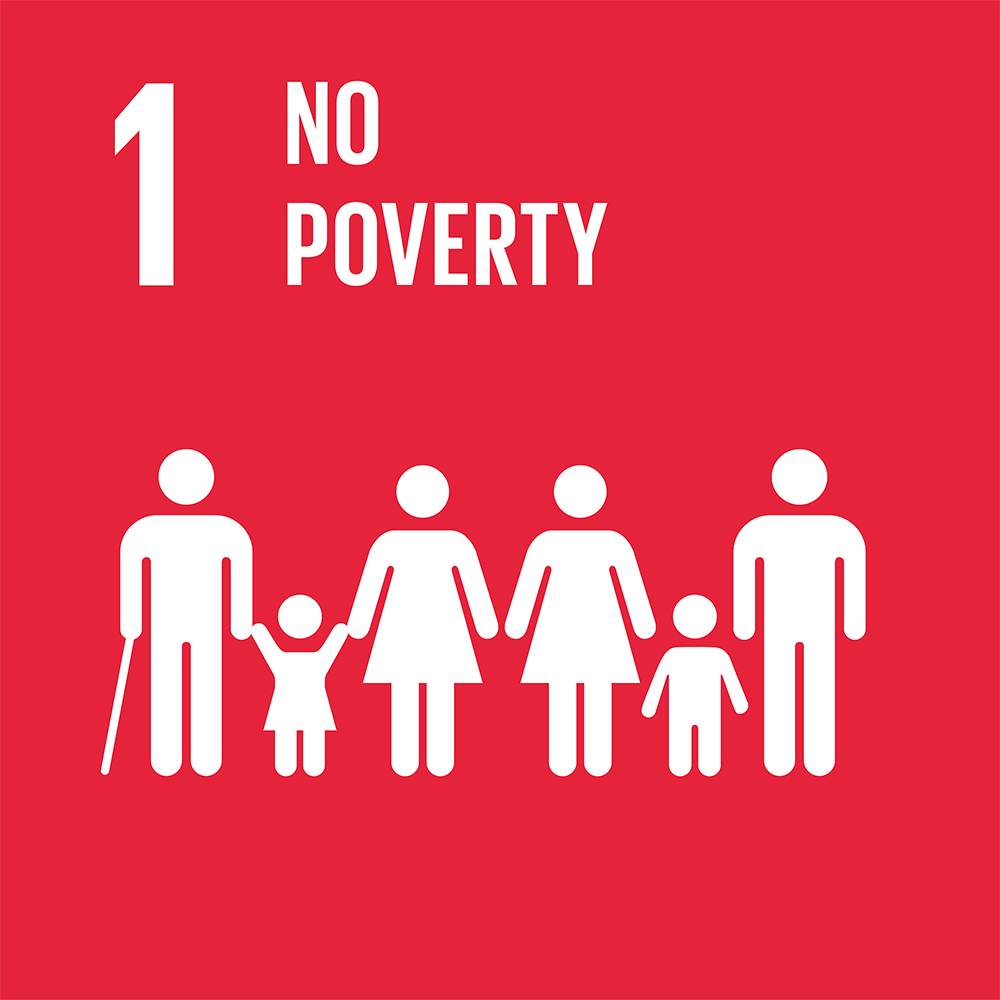 |
Goal 1: End poverty in all its forms everywhere
One in five people around the world lives on less than $1.25 a day, vulnerable to poverty-related challenges like hunger, malnutrition, limited economic and educational opportunities and discrimination. Episcopal Relief & Development partners with local churches and organizations to offer micro-finance services and promote savings groups that support community members in growing their businesses and developing healthy financial habits. Our inclusive, integrated programs also provide business and vocational training for both men and women, helping communities to become more gender equitable and move forward together. |
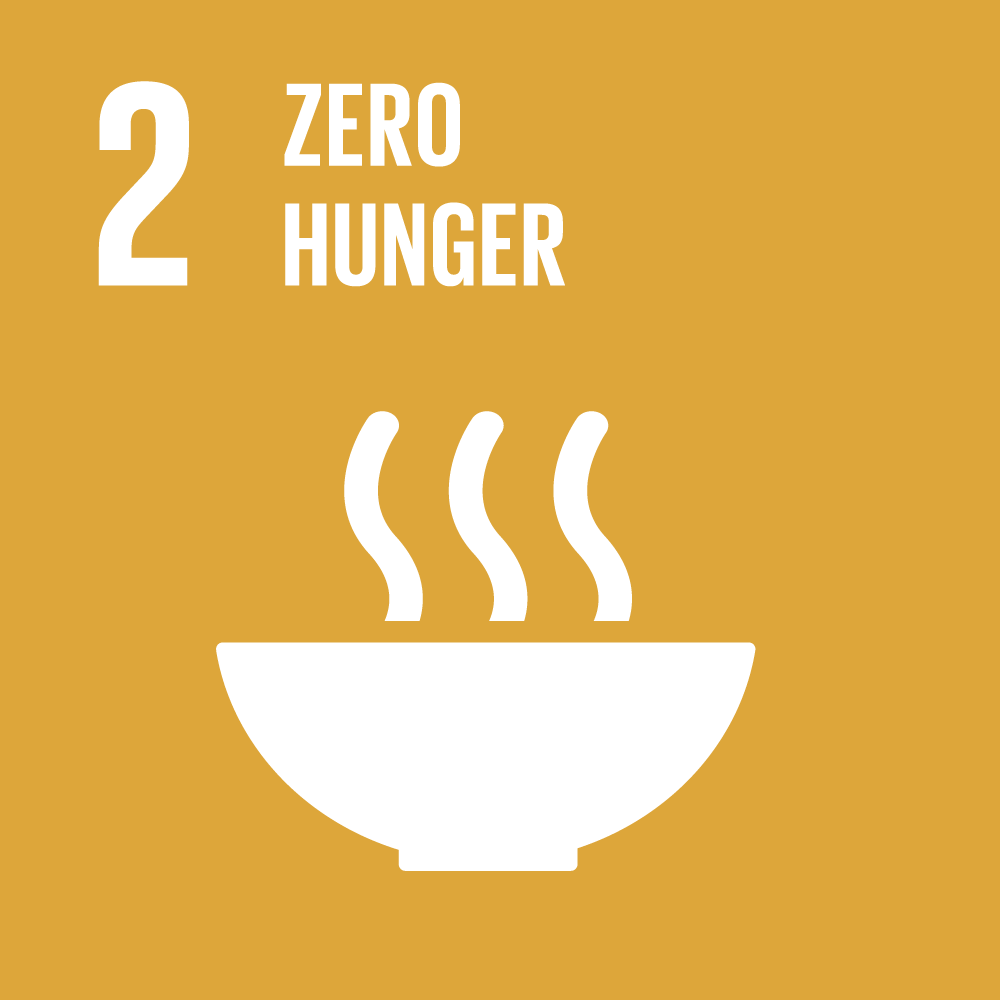 |
Goal 2: End hunger, achieve food security and improved nutrition and promote sustainable agriculture
Nutritious food must be available, affordable and accessible in order to support overall health and well-being, but changing climates and aggressive agricultural production methods threaten to disrupt food supply and the environment. Episcopal Relief & Development works with local partners to provide training and tools to strengthen community-based agriculture and improve soil and water systems. Our partners give farmers healthy animals and opportunities to learn and share improved agricultural techniques, and support cooperatives in finding ways to access local markets and increase income. Farmers are able to increase the quality, quantity and diversity of their crops, improving nutrition in their communities and becoming more resilient to environmental changes and disasters. |
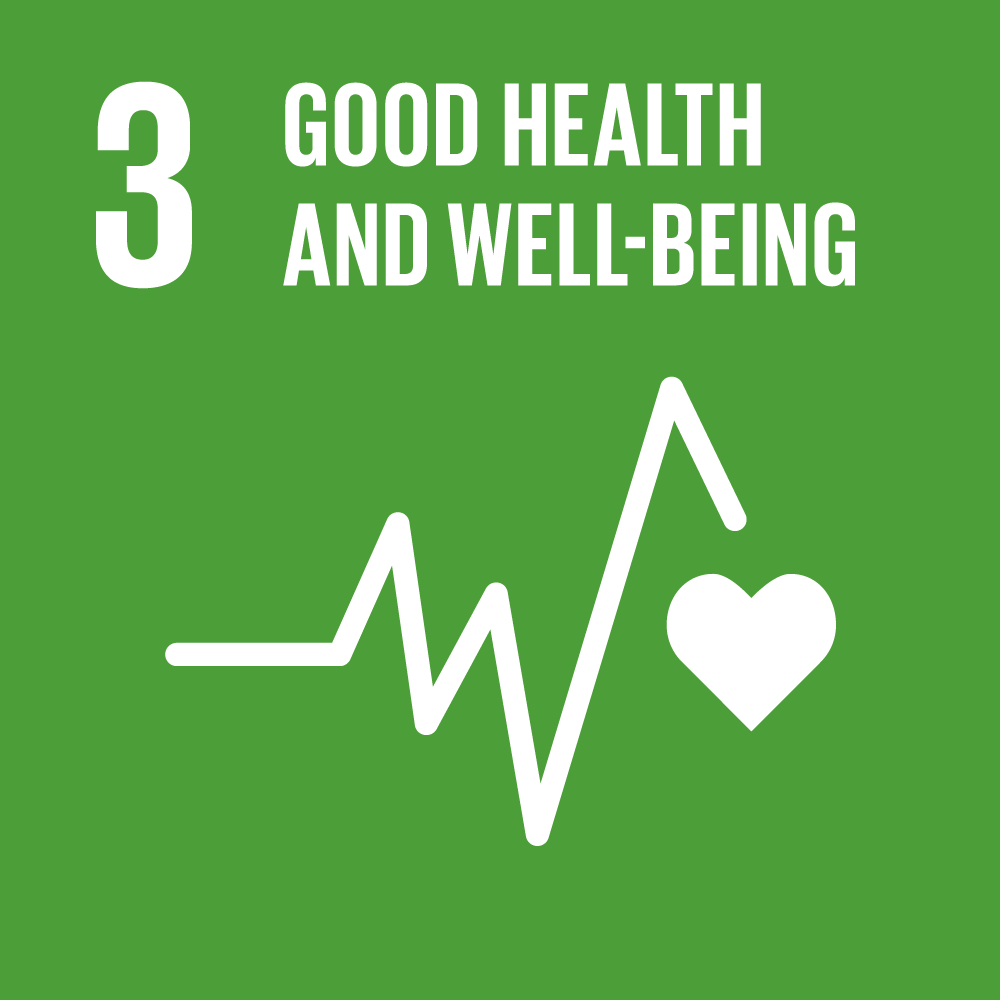 |
Goal 3: Ensure healthy lives and promote well-being for all at all ages
The first five years of life are a critical time for physical, mental and emotional development. The effects of simple preventive care and a supportive environment can have a significant impact in adulthood. To support health and well-being at all ages, Episcopal Relief & Development partners with local organizations to train volunteers on health promotion and disease prevention, and works with communities to improve water and sanitation systems. Over the past 10 years, we have been building a network of volunteers to educate their communities, provide health interventions, refer complicated cases and follow up over time fueled the success of our flagship NetsforLife® malaria program. This methodology is now being used in the framework of integrated Community Case Management (iCCM) to reduce sickness and death from diarrhea and pneumonia as well. We also engage in HIV/AIDS prevention and education programs, and work with people living with HIV/AIDS to empower them economically and decrease the stigma surrounding the disease. |
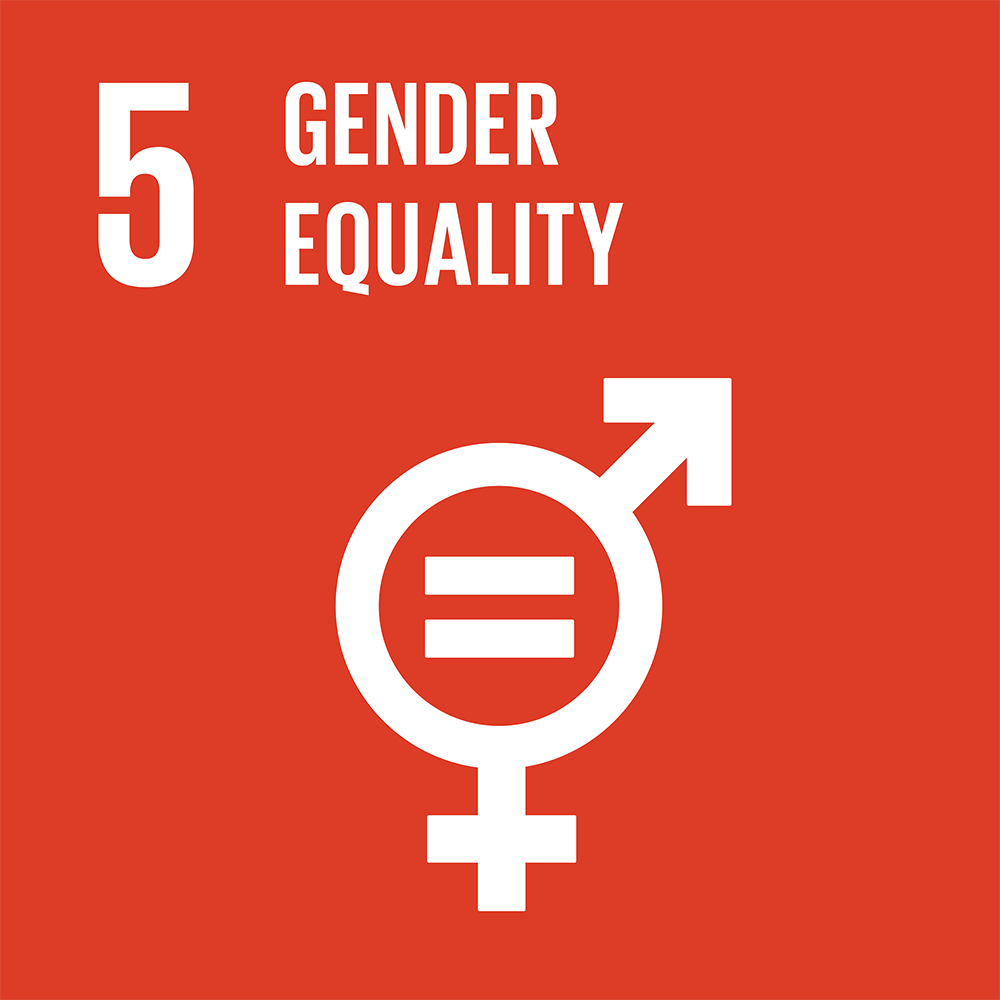 |
Goal 5: Achieve gender equality and empower all women and girls
In order to have a sustainable impact on hunger, poverty and disease, communities must address the issues of gender equality and women’s empowerment at every stage of creating and carrying out their plans. Exploring and enabling change in the ways men and women view and relate to each other is essential in creating a more equitable culture where everyone has equal access to resources and can enjoy their human rights. Episcopal Relief & Development is working through faith networks to inform and empower religious leaders to become positive influences in pursuing gender equality within their larger communities, particularly on the issue of gender-based violence (GBV). We also strive with our partners to make women’s empowerment a focus of programs in agriculture, micro-finance and small business development, and to intentionally include women in decision-making and leadership opportunities. |
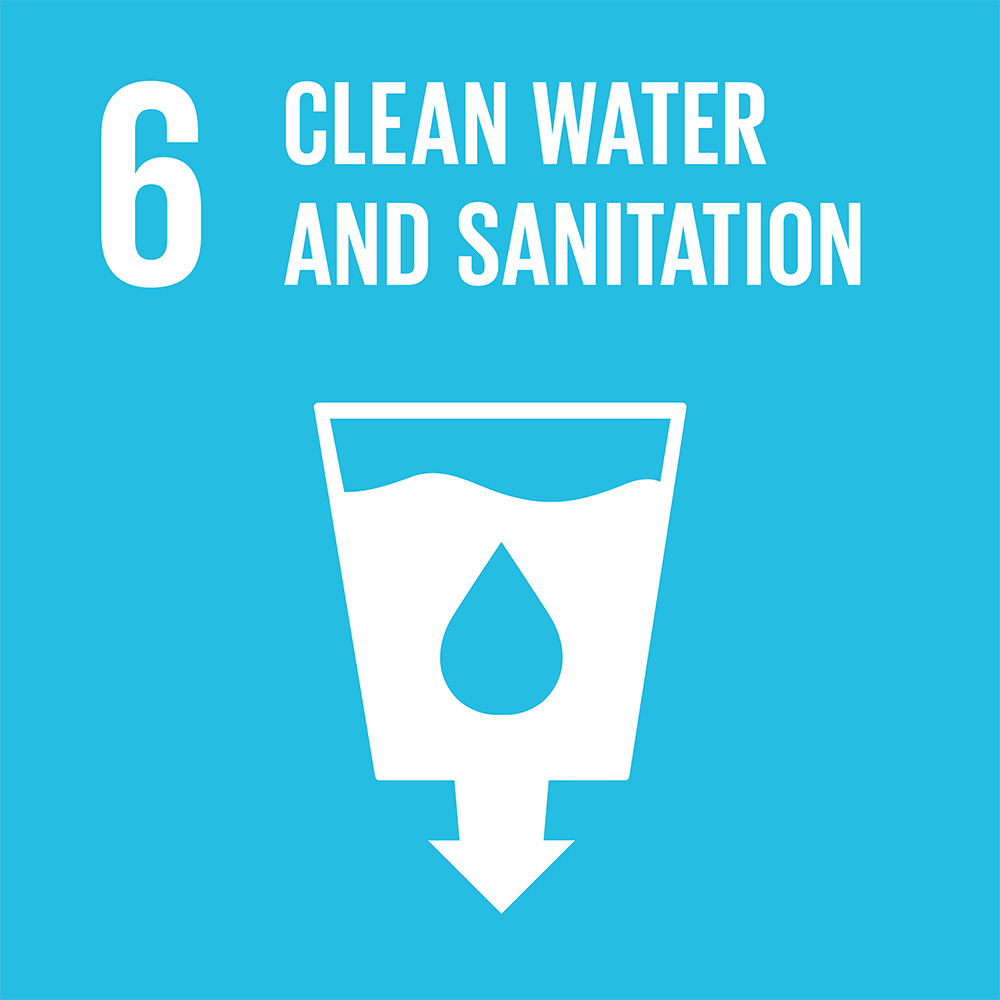 |
Goal 6: Ensure access to water and sanitation for all
More than 650 million people worldwide lack access to a secure water source, and a staggering 2.4 billion are vulnerable to environmental contamination and water-borne disease from inadequate sanitation. Lacking access to clean water and sanitary facilities impacts overall health and has a disproportionate effect on women and girls, whose responsibility for collecting water for their households leaves limited time for other activities such as pursuing education and earning income. Episcopal Relief & Development supports communities in establishing clean and secure water sources to ensure that even the most rural areas have access to this critical resource. Wells and water systems are constructed by community members, meaning that the feeling of ownership and knowledge of how to build and maintain the system resides in the community itself. In addition to providing water for drinking and household use, these water sources enable farmers to produce healthy crops to eat and sell for income, contributing to the local economy and food supply. |
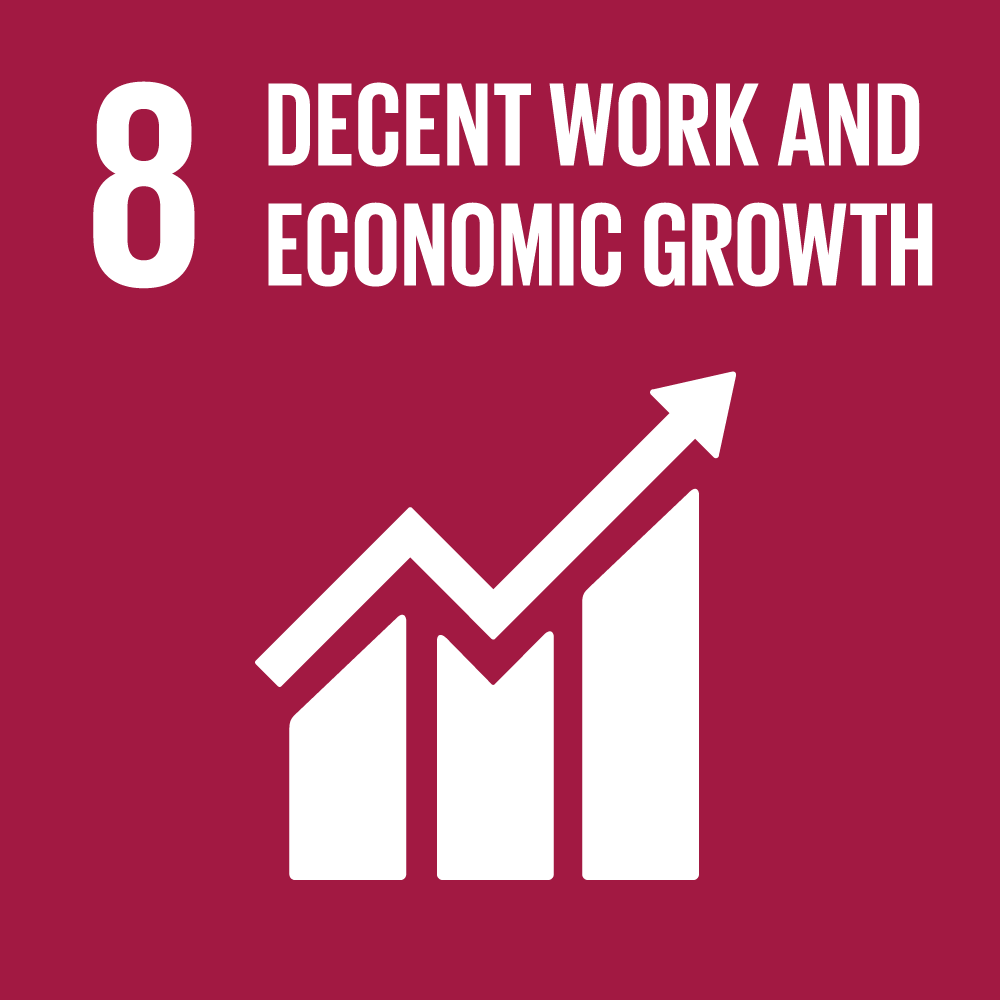 |
Goal 8: Promote inclusive and sustainable economic growth, employment and decent work for all
Nearly half of all people live on less than $2 a day, and in many places, having a job doesn’t guarantee the ability to escape from poverty. Acknowledging communities’ strengths as well as their needs, Episcopal Relief & Development works with local partners to create economic opportunities, implementing an asset-based approach to reduce poverty and create thriving communities. Our program methodology recognizes and mobilizes existing skills and capacities in an area to spark lasting transformation, increasing community income and overall well-being. We support micro-finance programs that support entrepreneurs by providing loans for materials and training to run successful businesses. By promoting a community’s own vision, we work alongside them as they develop and grow their dreams, equipping community members with resources and knowledge to help them flourish. |
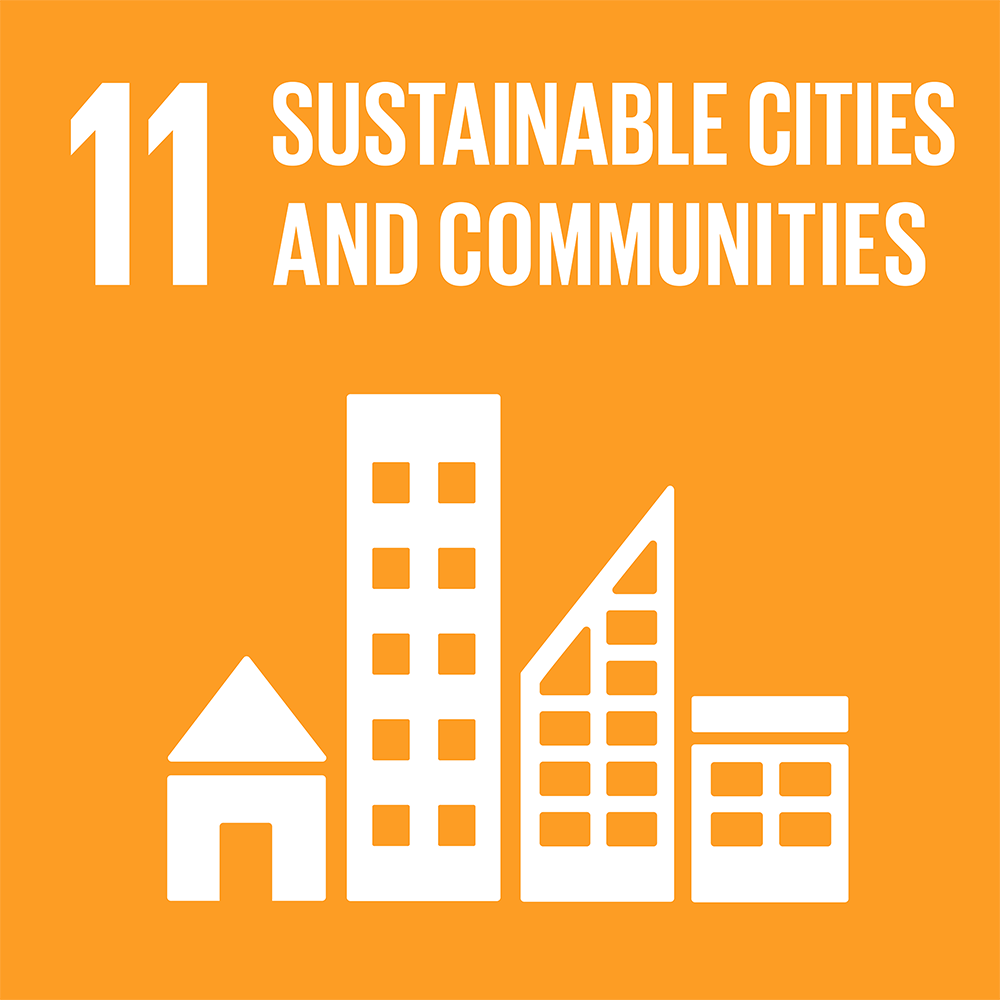 |
Goal 11: Make cities inclusive, safe, resilient and sustainable
As more and more people around the world flock to cities in search of jobs, education and access to services and resources, the pressure of urbanization is impacting the environment, public health and how people relate to one another. Episcopal Relief & Development’s local partners work in communities large and small to reduce poverty, promote health and increase justice and gender equity, adapting program models to fit culture and context. Micro-finance services and business management training help women entrepreneurs to gain confidence and build their operations so they can earn income and provide for their households. Our health programs monitor for diseases and promote health by ensuring access to clean water and sanitary facilities. These systems also build community resilience and reduce disaster risk, creating economic safety nets and networks that can mobilize in an emergency. |
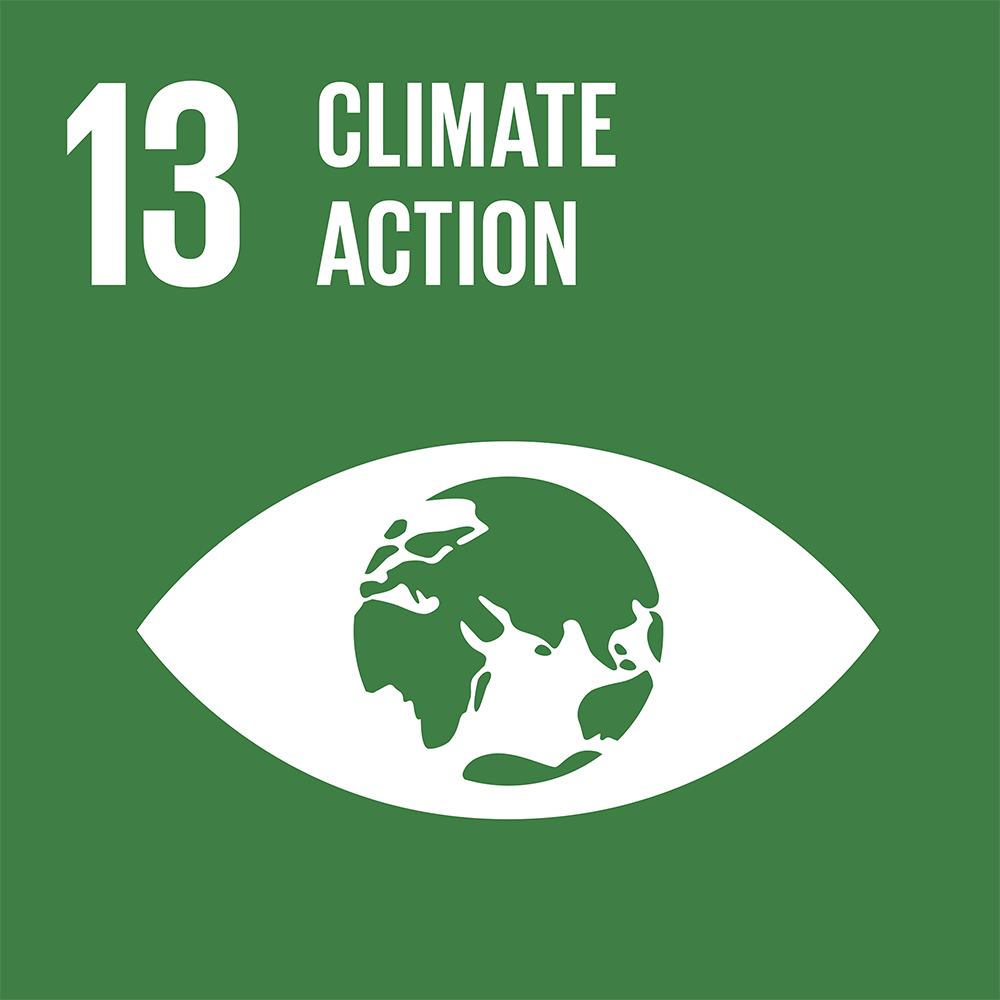 |
Goal 13: Take urgent action to combat climate change and its impacts
Changing climates and irregular weather patterns are a global concern, with the most immediate risk in coastal areas and those that rely heavily on agriculture for food and income. Some places have too much water, from the rise of sea levels and major rainfall that cause flooding and landslides, while other places have too little, with chronic droughts that last for years, draining food supplies and financial reserves. Episcopal Relief & Development’s partners work with the communities they serve to identify risks and use local resources to reduce the impact of hazards, including disruptions in the environment. We create connections so that farmers can learn from each other and share expertise about climate-smart approaches to agriculture that prevent soil erosion and improve the quality of the environment. We also work with communities to construct water systems to provide healthy, sustainable water sources even during times of drought. |
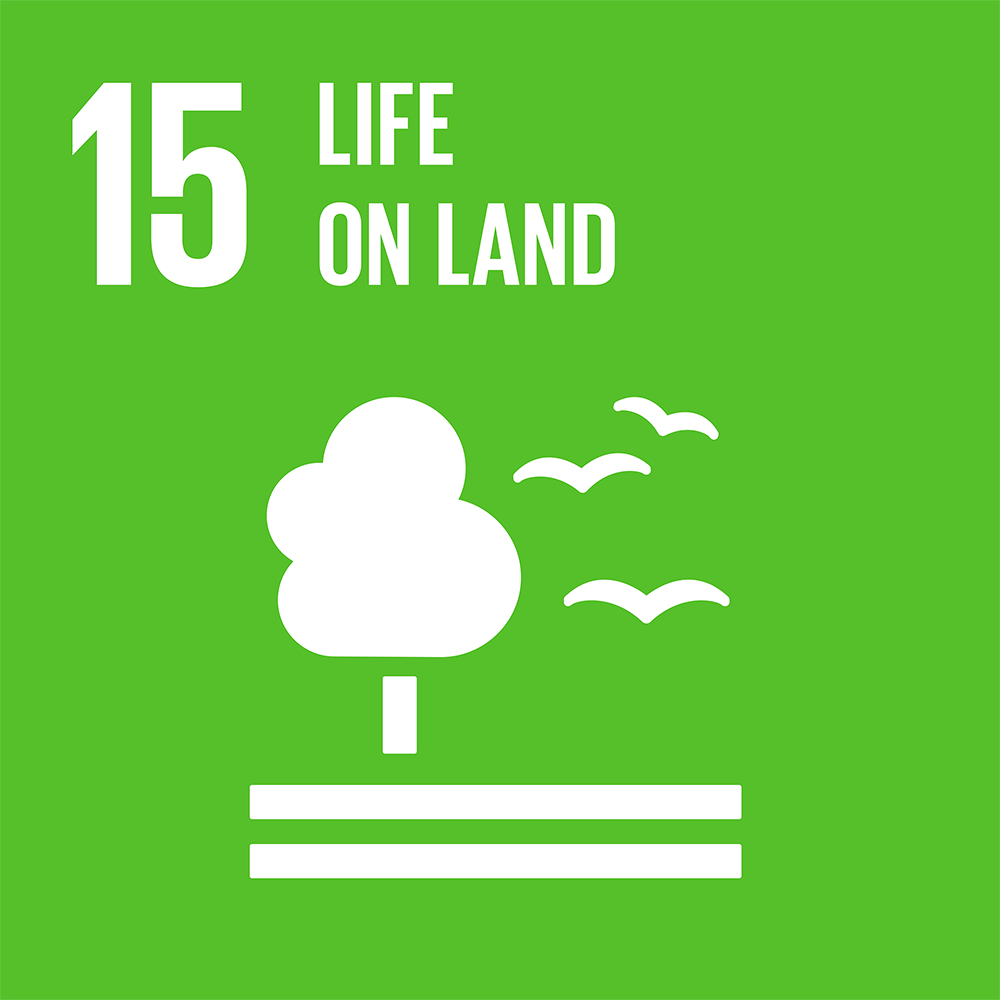 |
Goal 15: Sustainably manage forests, combat desertification, halt and reverse land degradation, halt biodiversity loss
Over 80 percent of the human diet is provided by plants, but 52 percent of the land used for agriculture is affected by soil deterioration. Degradation of land, loss of biodiversity, changing climates and deforestation all pose a challenge to sustainable development, negatively affecting the lives of millions of people who are striving to create a better, healthier future for their families. Episcopal Relief & Development supports partners worldwide in addressing these challenges while improving food supply, contributing to the economy and raising overall quality of life. Our partners work with local farmers to set up shared tree nurseries to combat deforestation, promote sustainable agriculture practices and communicate the importance of preventing erosion and enriching the soil. Community members engage in solving the problems of deforestation and land degradation to combat poverty and promote environmental sustainability. |
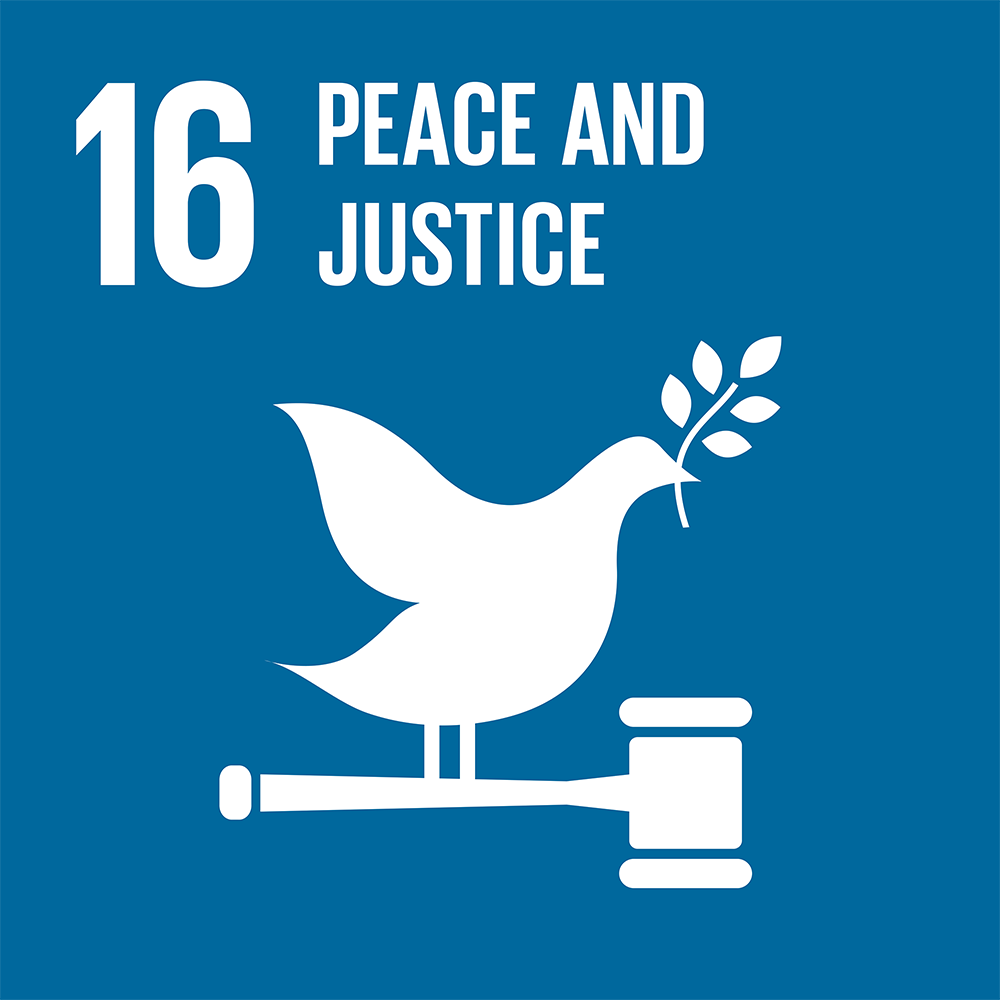 |
Goal 16: Promote just, peaceful and inclusive societies
Violence, rape, trafficking and marginalization are forms of gender-based violence (GBV) that impact the well-being of women and other vulnerable populations in all countries, in turn disrupting the lives of their families and communities. Episcopal Relief & Development promotes justice through its commitment to ending GBV, by working with faith leaders to change attitudes and behaviors and by supporting gender-inclusive and empowering programs that strengthen communities from within. Local leaders are trained to integrate gender awareness and anti-violence messaging into their activities, to ensure that women’s voices are included in planning and decision making. Many of our programs, particularly agriculture and micro-finance initiatives, focus on equipping women with knowledge and resources to help them succeed economically and provide for their families. Gender equity cultivates a sense of wholeness within a community, as both men and women are able to work together to create thriving future. |
MILLENNIUM DEVELOPMENT GOALS
What are the Millennium Development Goals?
The Millennium Development Goals (MDGs) were established in 2000 to reduce the number of people who live in extreme poverty by 2015. Final reports on the achievements of the MDGs is expected to be shared in May 2016. The following eight goals were developed by the international community, including leaders from 191 countries. They were also been endorsed by development institutions and religious bodies worldwide.
For more information, read the United Nations’ 2015 Report on the MDGs and the international development community’s ongoing commitment to these goals.
- Eradicate extreme poverty and hunger
- Achieve universal primary education
- Promote gender equality and empower women
- Reduce child mortality
- Improve maternal health
- Combat HIV/AIDS, malaria and other diseases
- Ensure environmental sustainability
- Develop a global partnership for development
How do we use the MDGs to measure the impact of our programs?
Each of Episcopal Relief & Development’s international programs addresses one or more of the Millennium Development Goals.
We work with church and other local partners to design and maintain indicators that assess program success.
Our staff continually monitors the progress and impact of our programs against the relevant MDG targets. As a result, we are able to demonstrate how our programmatic approach and methodology is contributing to the achievement of the MDGs in the communities in which we work.
With our experience partnering with underserved communities, we are uniquely positioned to help empower program participants to transform their lives and communities.
What is our commitment to the MDGs?
The Millennium Development Goals challenge us to fulfill our mandate, found in Matthew 25.
In this passage, Jesus portrayed himself as a person suffering from the conditions associated with poverty and blessed those who responded to his needs. People didn’t remember helping him. They asked, “Lord, when did we see you hungry…or thirsty…or sick?” His response was clear: When we serve others, we serve him. “Just as you did it to the least of these who are members of my family, you did it to me.”
At Episcopal Relief & Development, we use the MDGs as a framework to guide our efforts and help us measure the impact of our programs. Each of our core program areas and all of our programs work to achieve one or more of the goals.
Episcopal Relief & Development invites Episcopalians to seize the opportunity to follow the example in Matthew 25 — to walk alongside people who are hungry, sick and suffering, and help empower them to overcome need. Partnering with Episcopal Relief & Development is a powerful and practical way to live out the promise made in our Baptismal Covenant to “seek and serve Christ in all persons.”
What is the Episcopal Church’s connection to the MDGs?
The Episcopal Church formally endorsed the Millennium Development Goals at the 74th General Convention in 2003. Three years later, the Church voted to make the MDGs a mission priority at the 2006 Convention. The Church also established a budget line item of 0.7% to support the achievement of the MDGs, and has encouraged all dioceses to pledge a minimum of their budget to ministries focused on these goals.
To find out more about the Episcopal Church’s commitment to the MDGs, visit ONE Episcopalian.
How has the Church supported Episcopal Relief & Development’s commitment to the goals?
Episcopal Relief & Development’s MDG Inspiration Fund was the first campaign to receive 0.7% of the Church’s budget, in 2006. The three-year campaign raised over $3.2 million.
At the 2009 General Convention, the Church pledged 0.7% of its budget to support our NetsforLife® Inspiration Fund campaign. The Inspiration Fund is a grassroots effort to educate, engage and unite Episcopalians to support the MDGs through the fight against malaria. The campaign goal is to build awareness about malaria prevention and raise $5 million by early 2013.
 How do the SDGs relate to the Millennium Development Goals (MDGs)?
How do the SDGs relate to the Millennium Development Goals (MDGs)?




